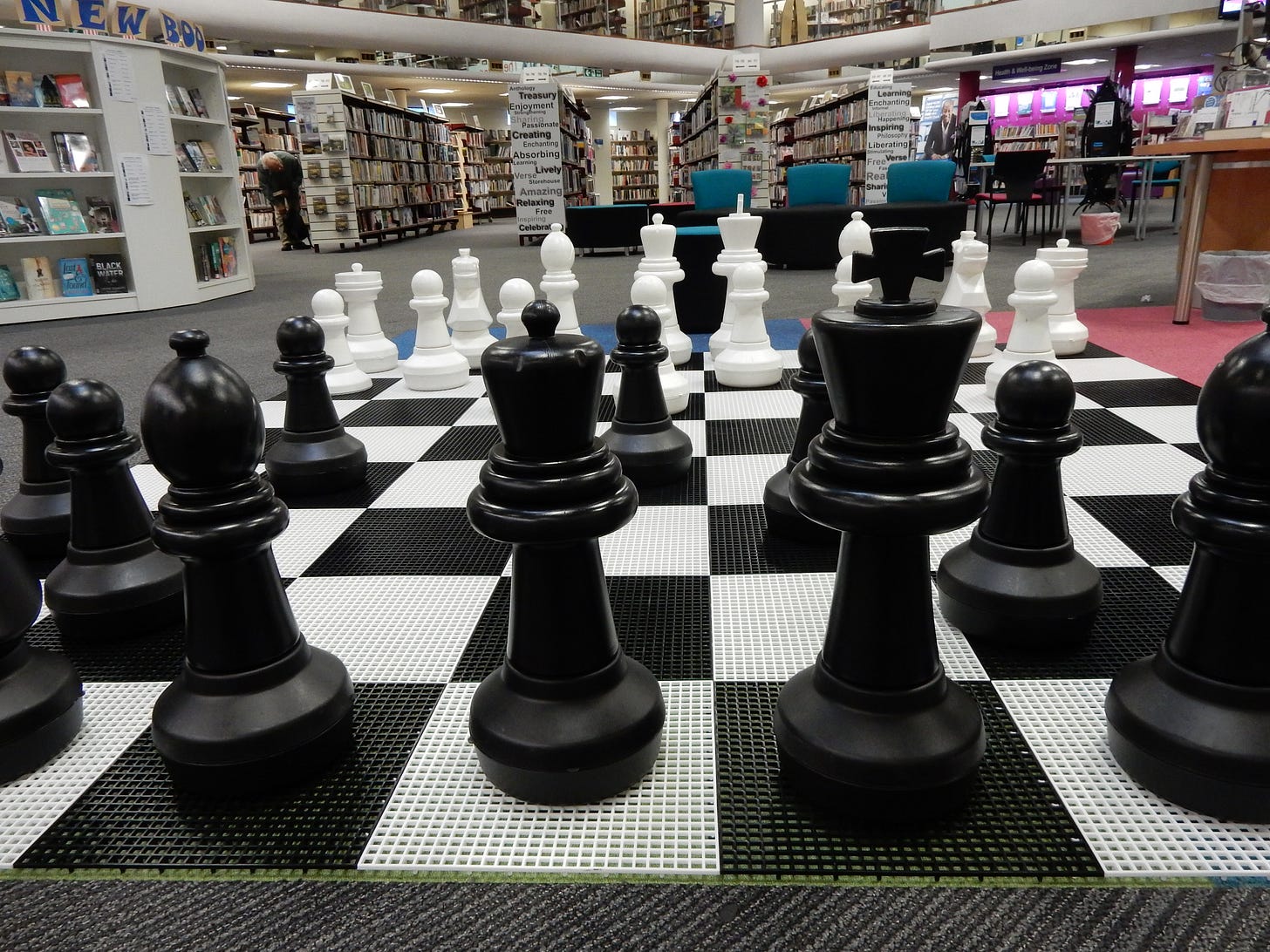What Makes a Game "Good"?
Good games make us better people.
Have you ever asked yourself what makes a game good? Of course, good games are fun, but beyond the subjective experience, what about games makes them “good”? There are many different answers to this question, but I believe there are two characteristics that all good games share.

Firstly, good games reflect a truth about the world in a way that we can understand and interact with. That representation can even be simple. For example, chess is a game which replicates trade-offs and hierarchy in a way that is easy to understand. It has been used as an analogy in political and social contexts because it captures something recognizable.
More complex games can replicate the world in more accurate ways. Harpoon, a popular war game we have featured in this newsletter, accurately captures the nuances and complexities of its subject matter. People can easily look at a Harpoon board and recognize the world it is representing. But sometimes games can go too far and become bogged down in details, which stops them from being fun.
Good games simplify the world based on the causal relationships that determine the game’s outcome. Tactical war games, for instance, are designed to replicate battles where victory depends on several factors, such as troop numbers and position on the battlefield. A good game will include all these potential causes of victory and incorporate them into the game mechanics.
Drifting away from variables that probably do not affect the game's outcome, in reality, makes the game unnecessarily complicated, and detract from gameplay. In our tactical war game example, some people may think it is important to include variables such as the type of cuisine the soldiers ate or the color of their uniform. This could be because different uniform colors might be easier to see on the battlefield, and different food might be more or less nourishing. However, these variables don't explain why the Prussians prevailed at the Sedan or why Japan defeated the Russians at Tsushima, and probably would not explain many, if any, military victories. Therefore, including those variables in gameplay is an unnecessary complication and detracts from the overall experience.
Second, Games engage players in their own minds. In the past, this argument was undisputed as the only place to play a game was in the mind.
However, with the development of video games, it is now possible to create and accurately represent fictional worlds. With the best video games, it can be difficult to tell if the scenery is real or not.
As computers and video games have become more advanced and realistic, we can be tempted to think of games as existing “on the other side of the screen.” The player and their thoughts are on this side of the screen, while everything that is part of the game mechanics is on the other side. This metaphor can be applied to non-computer games as well, recognizing that the rules and structure of the game are on the other side of the screen, too.
No matter how realistic or imaginative the game is, it won't be enjoyable if players are unable to immerse themselves in it. Players must be willing to let go of reality and believe they are truly in the game, or else they will just feel like they are manipulating plastic pieces or pixels on a screen, rather than fighting a legendary battle or vanquishing an evil force.
It is perhaps the ease with which children suspend disbelief and engage with play that associates games with children. After all, it doesn’t take a lot to get a kid to believe that there are Tyrannosaurus Rex. But while children play at games, games are anything but child's play.
Suspending disbelief, probing the realm of the possible, and trying new ideas are also the core of learning, education, and creation. To learn, we must accept that we don't know everything, and to transfer something that, to our current experience does not exist, into our minds. To create something, we must reach into a world that does not exist, and pull something into our world. In other words, whether through games or another means, many of the most important skills that we can master as adults, we learn through play.

